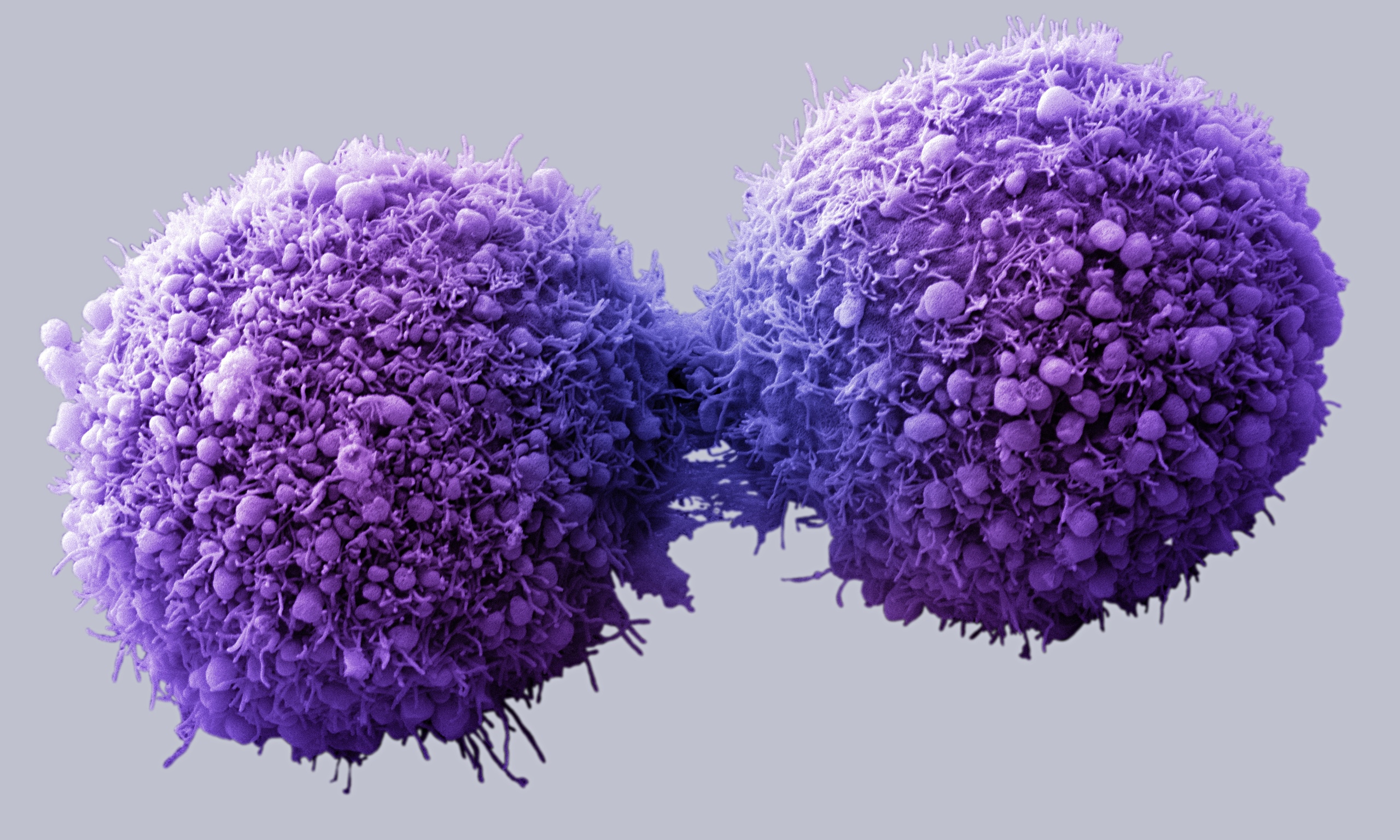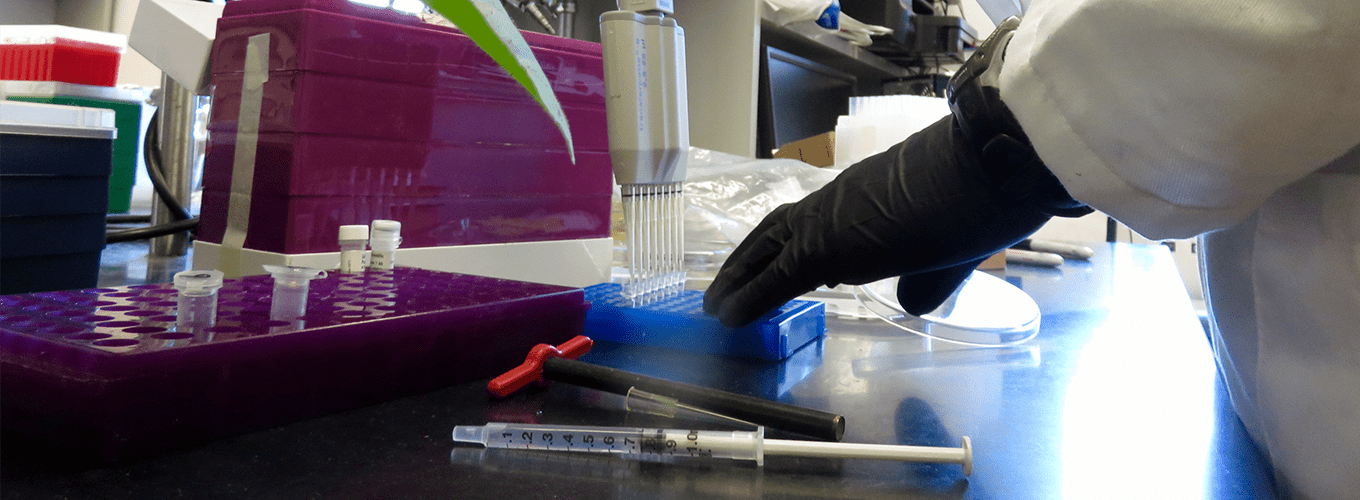
IGI Extends Collaboration with AstraZeneca to Include New CRISPR-Based Cancer Drug Discovery Project
The Innovative Genomics Institute (IGI) is undertaking an exciting new project with global biopharmaceutical company AstraZeneca, focused on identifying potential drug targets in DNA Damage Response (DDR), a pathway at the core of many cancers. As the connection between complex DDR mechanisms and various forms of cancer is being increasingly understood, researchers at the IGI are planning to deploy cutting-edge screening technologies to further identify therapeutic strategies capable of intervening at the DDR level to treat cancer.
CRISPR sits at the center of this collaboration. Best known for its use in genome editing, CRISPR is also deployed as a tool in drug discovery to test the function of thousands of different genes within a single experiment. One of the pioneers behind developing CRISPR as a high-throughput screening tool is IGI Investigator Luke Gilbert, Assistant Professor at the University of California, San Francisco. Gilbert was one of the first scientists to use the DNA-targeting protein CRISPR-Cas9 to precisely turn the effects of specific genes up or down, a process called CRISPR activation or inhibition (CRISPRa or CRISPRi). The unprecedented precision and scope of this technology make it an ideal technique to investigate the impact of a drug or combination of drugs on the complex gene networks of a human cell. The collaboration will deploy this use of CRISPR technology to identify compounds that can work synergistically to combat cancer.

“AstraZeneca is a world-leading oncology company, and the development of innovative DDR compounds is one of its four oncology research platforms,” says Gilbert. “A deeper understanding of the genetic make-up of cancer cells is a crucial first step in designing new, targeted drugs as personalized therapies. Our work will immediately translate into testable clinical hypotheses and inform the development of potential future therapies targeting mutations that are key to cancer.”
This new project is not the first time the IGI has teamed up with AstraZeneca. In a previous collaboration, Jacob Corn, the former head of the IGI biomedicine program area, used similar CRISPR screens to better understand the roles of genes in disease pathology. Led by postdoctoral researcher Shaheen Kabir, Corn’s team was able to advance CRISPR screening technology and validate gene targets relevant to cancer, cardiovascular, metabolic and respiratory diseases.

Now knowing what the technology is capable of, Kabir has joined Gilbert’s lab and is ready to bring her knowledge one step closer to helping patients. Kabir’s next iteration of CRISPR screens will “illuminate subsets of patients that are likely to respond to these inhibitors as well as identifying genes that may render cancer cells vulnerable or resistant to existing therapies.”
Collaboration with industry partners offers an opportunity for ground-breaking research to quickly address the pressing needs of patients. Combining the genome editing expertise of the IGI with the oncology pipeline of AstraZeneca could lead to previously unattainable insights. “This project uses cutting-edge CRISPR tools developed at the IGI, UCSF, and UC Berkeley with the aim of dissecting which patients will respond to new therapies AstraZeneca is developing,” says Gilbert. We are seeing years of CRISPR technology development starting to coalesce, and with collaboration with industry partners, moving closer to the clinic.
AstraZeneca and Cancer Research UK launch Functional Genomics Centre to accelerate the discovery of new medicines
AstraZeneca | December 10, 2018
 By
Kevin Doxzen
By
Kevin Doxzen



